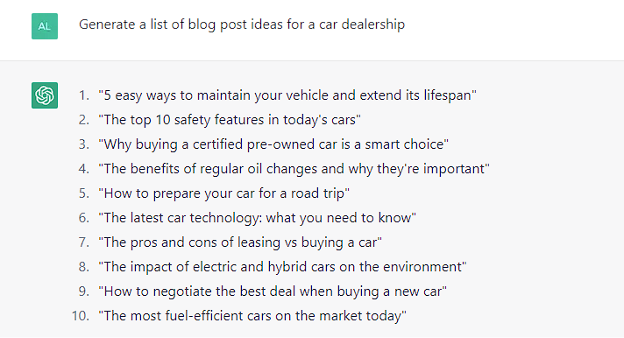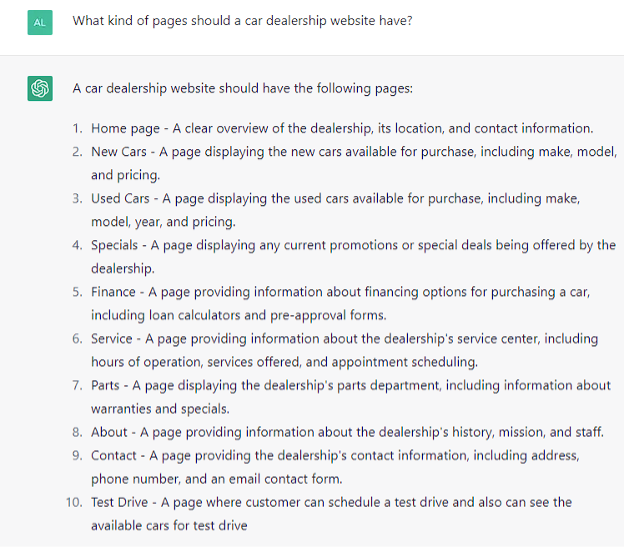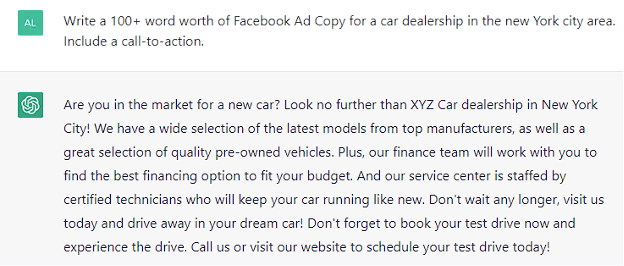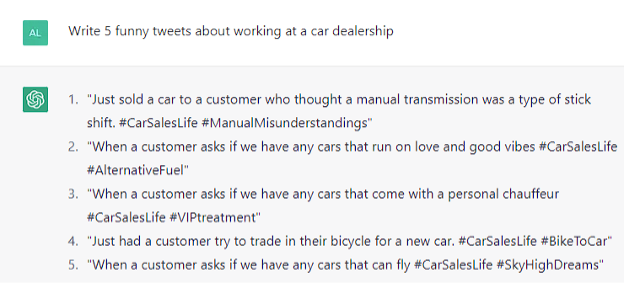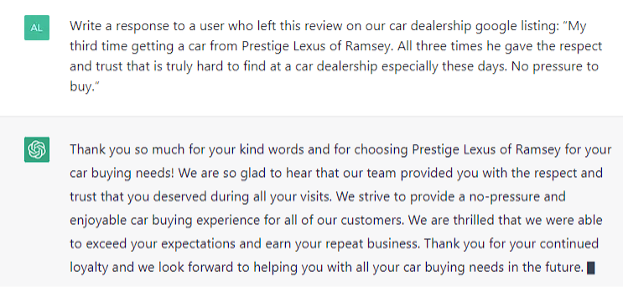As we kick off 2024, we thought it’d be a great opportunity get the views of two digital marketing experts in automotive: SmartSites’ Alex Melen and Overfuel’s Alex Griffis.
There were no shortage of events in 2023 for the automotive industry–more emerging technologies, increasing popularity of online car-buying, and most importantly, the advances in generative Artificial Intelligence (AI). The way consumers interact with the automotive industry continued to shift over the course of the year, creating new challenges for dealerships to keep pace in a fast-changing environment.
As we look at 2024, how much of an impact will AI have? How is advertising strategy changing? Overall, what does 2024 hold for dealerships and their digital presence? Let’s hear what Melen and Griffis have to say.
What was a surprising trend in 2023 that’s likely to carry over into 2024?
Alex Melen: “Seeing pay-per-click advertising costs continue to increase (a trend that will continue into 2024). As more and more dealers shift their spending to digital, search marketing (Google Ads, Microsoft Ads) continues to attract the lion’s share of the budget, driving up costs. As a result, 2023 experienced one of the biggest jumps in cost-per-click increases in the last few years. That said, search marketing continues to be the best platform for car dealership—and will become even more so with the deprecation of cookies and third-party data. Search continues to be one of the few places in the world where consumers self-identify their intent (i.e.: search for “audi q5 lease deal” or “audi dealership near me”)—allowing advertisers to bid on the specific audiences and self-identified intent.”
Alex Griffis:“One of the most exciting surprises was hearing dealerships use the acronym CWV, or Core Web Vitals, which measures how websites perform based on real-world usage data. It was surprising because, for a long time, we’ve known only 39% of automotive websites achieve good CWB ratings, making it the second-worst performing industry behind Travel. Dealerships are discovering that poor web performance is coming at a significant opportunity cost, and awareness of this issue will continue to increase in 2024.”
Was there a trend in 2023 that you foresee declining in 2024?
Alex Melen: “I think 2024 will mark the end of the minimalist effort and attitudes we’ve seen across auto over the last three years. After some very profitable years in the industry (where demand outstripped supply), I think auto will return to the basics of working hard for every sale and every opportunity across every job function. This applies to vendors just as much as dealership employees—I’ve seen many vendors get by with minimal effort over the last few years, delivering minimal value for the dealership. I believe 2024 will be the year of re-evaluation of both internal strategies at dealerships, their external vendors, and their marketing activities.”
Alex Griffis:“It may not be the most popular opinion, but I foresee the use of live chat products, especially those that are AI-driven, struggling for adoption for three reasons: One, it’s no secret that AI was all the rage last year and many automotive companies joined the race, resulting in clunky products that sold cars for $1. Second, there’s a growing distrust between consumers and AI-based products. Storyblok, a content management system (CMS), revealed that 85% of consumers aren’t interested in using AI to help them make a purchase. Lastly, based on analytics data we’ve collected, live chat has a negative impact on conversion rates when implemented poorly. On vehicle pages, clicking the ‘close’ button on live chat accounted for 20% of all clicks.”
As we kick off 2024, what should be on dealerships’ radars?
Alex Melen: “2024—more even than 2023—will be the year of change. From challenging market conditions, to cookie tracking going away, to the rise of AI and Google’s Search Generative Experience. As I preached during the start of the COVID years, dealerships will need to be agile and proactive (vs reactive). As we saw during the pandemic, the dealerships that were agile and able to adapt profited greatly. Those that weren’t, are no longer in business—despite two record years that followed the start of COVID.”
Alex Griffis: “Website speed, hands down. Over the course of 2023, we saw clients increase organic search traffic by 200-300% by simply making speed a priority and paying close attention to CWV. In March 2024, Google is reportedly releasing new metrics and standards for website responsiveness, which will put even more pressure on dealerships whose websites perform poorly on mobile. Since we’re seeing over 80% of website traffic originating from a mobile device, solving the performance issues are a must.”
What role will AI play in automotive for 2024?
Alex Melen: “Generative AI has the potential to be extremely impactful—if used correctly. I wrote my book on search marketing just a month shy of the explosion of ChatGPT, and it was done the old-fashioned way: one click at a time. I briefly mentioned the coming Generative AI revolution; however, I assumed that Google would not only devalue AI-generated content but label it as such. Considering that even free tools can identify AI-generated content, it’s a no-brainer that Google, which purchased DeepMind in 2014, would easily be able to identify and label (and potentially penalize) AI content.
However, in February 2023, Google came out with their guidance saying that they will continue to treat content following their current guidelines (following the EEAT model), regardless of how it was created. That said, Google continues to reward content based on Experience, Expertise, Authoritativeness, and Trustworthiness. In most cases, AI-generated content will not meet that criteria and will naturally be devalued in search results.
With that said, Generative AI can be used to help create content ideas, generate first drafts of content, and so forth. For 2024, I believe this new approach will gain traction, and Generative AI will become a tool to help create content. And of course, it still continues to be extremely powerful at helping with your social media content, generating campaign ideas, creating ad-copy, responding to reviews, and so much more.”
Alex Griffis:“AI-based products will continue to surge, but many will fail to launch and that’s okay. To Alex’s point, I think there are opportunities for AI to be used responsibly, like boosting productivity or assisting in content generation. In fact, there are many use cases for AI in automotive that aren’t purely conversational.
A few great examples come to mind. Inventory management is improving through analyzing historical data, crunching numbers, and helping dealerships better price their inventory to be competitive. We’ve started using a model internally for predictive vehicle maintenance and automated outreach to customers. It feels like the focus on conversational AI has totally overlooked the other customer touch points that are more subtle and behind the scenes.
As companies iterate to make automotive AI products better, I think the
most gains will be made in the sales enablement or customer experience
applications.”

